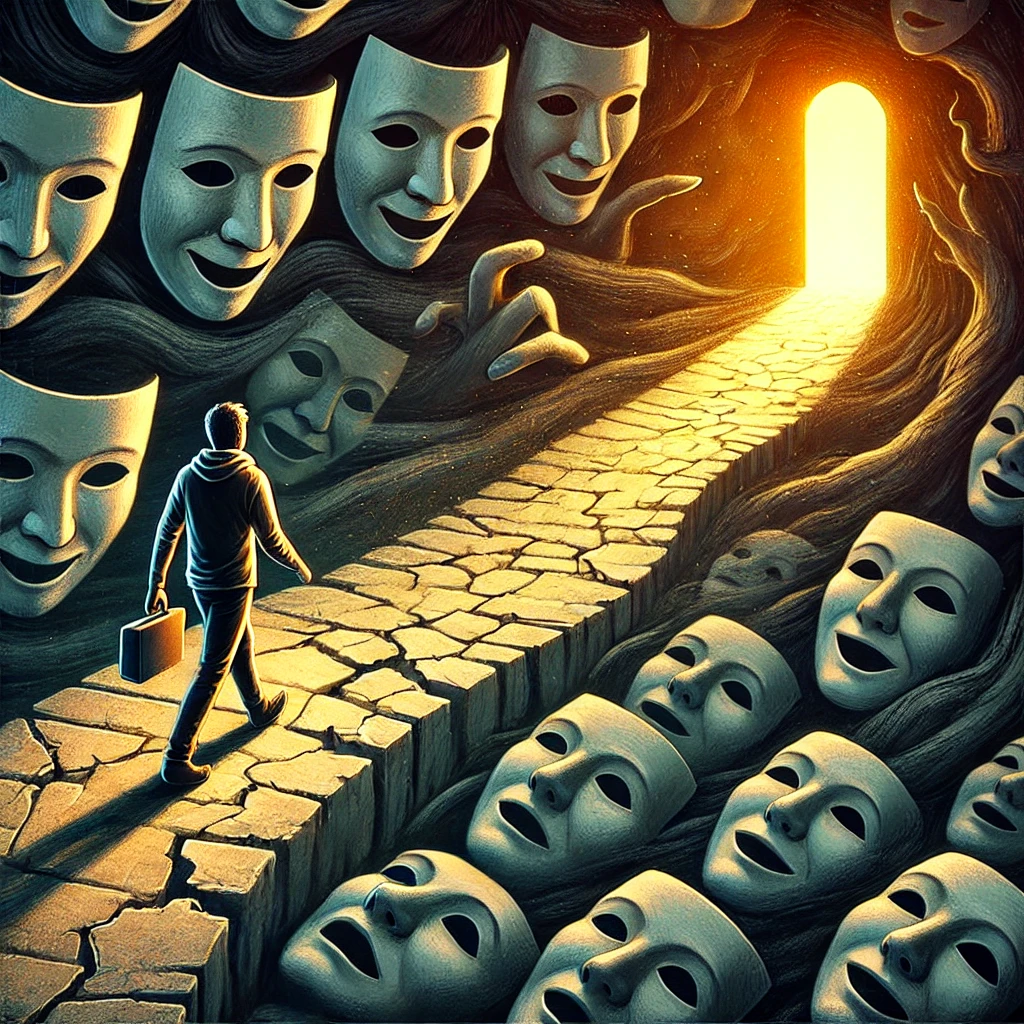What happens when lying isn’t the exception, but the house language. When it’s not a “bad choice,” it’s Tuesday. In families like that, truth doesn’t get protected. It gets traded away, usually in the name of keeping the peace or avoiding the blast radius.
This is me trying to name what that did to me. The unlearning part. The internal tug-of-war. The slow shift toward living like my word actually means something.
When Lying Was Normal in My Household
In my childhood home, lying wasn’t some shocking event. It was background noise. My parents lied to each other. My brother lied to them. I lied because it kept me breathing easier. Sometimes the lies weren’t even mean. They were tossed out casually, like people do when they’ve forgotten truth is supposed to matter.
That repetition built a blueprint. Not for honesty. For survival-by-any-means.
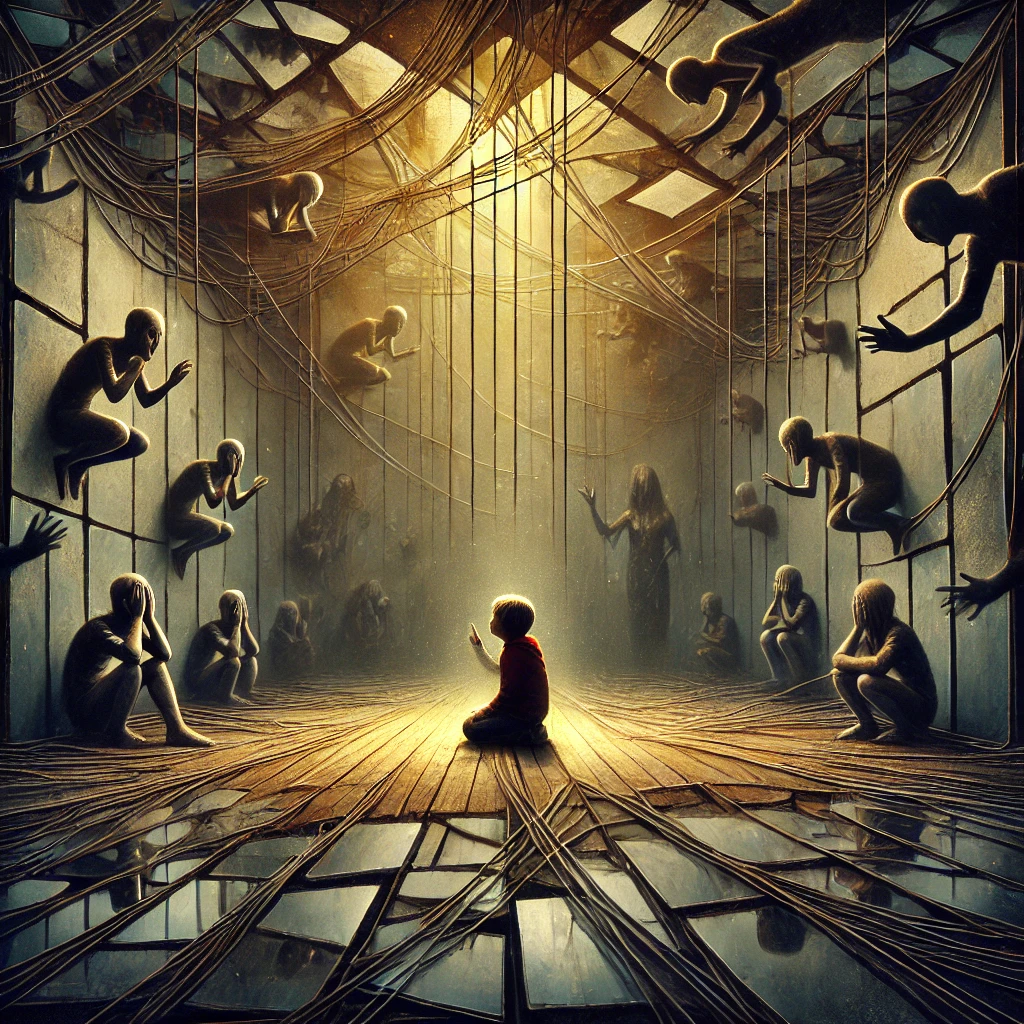
The Double Standard That Made It Worse
The rules weren’t rules. They were mood swings with a dress code.
One day, a lie got waved off like it was nothing. The next day, the same kind of lie could get you punished, shamed, screamed at, whatever the weather called for. That unpredictability didn’t just confuse me, it trained me to scan for danger all the time. I never knew which version of reality I was supposed to follow.
How Small Lies Became Survival Tactics
Lies don’t usually show up wearing a villain cape. They start tiny. An omission. A half-truth. A little edit to avoid the fallout.
Then you realize it works. You can delay consequences. Nudge outcomes. Dodge pain. And once it works, your brain logs it as a tool. In a place where truth had no real reward, deception became currency. You paid with it. You saved with it. You spent it when you had to.
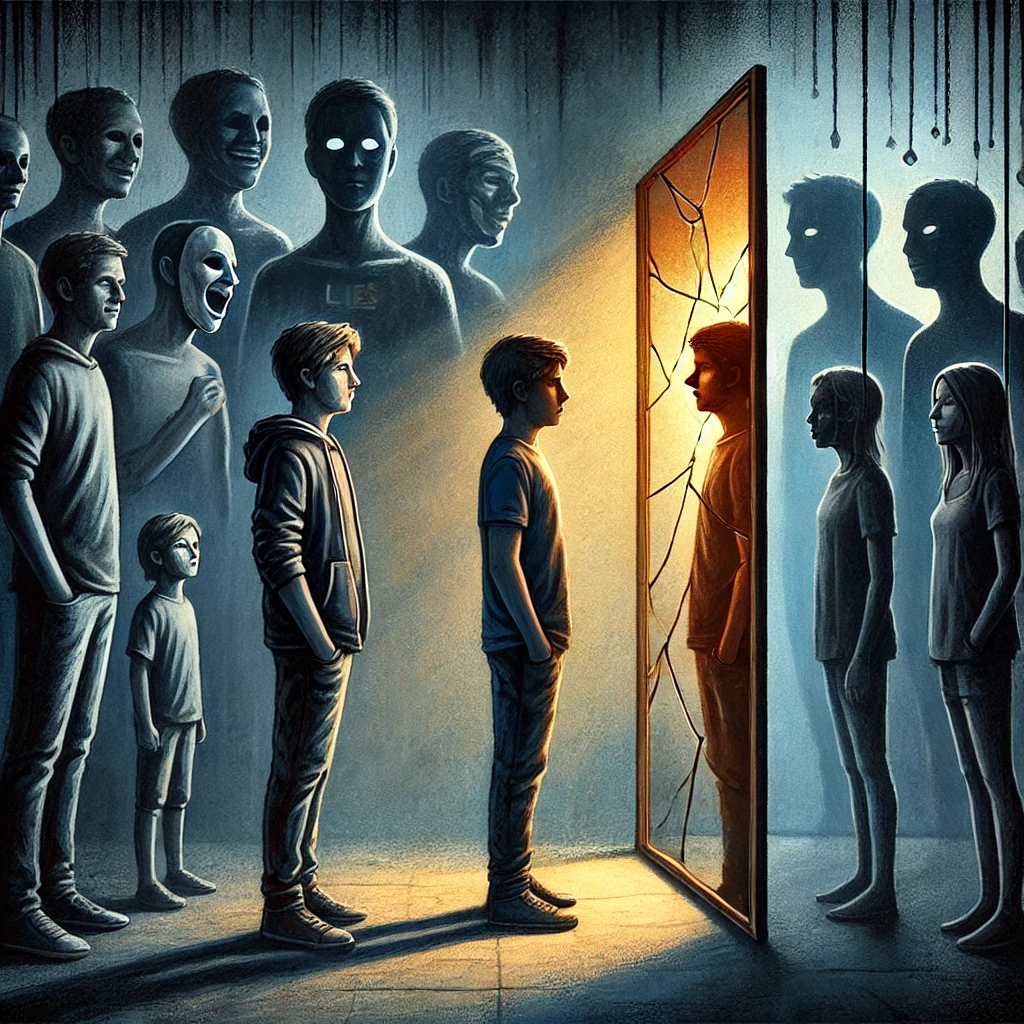
Corruption Starts with What We Normalize
At some point, my behavior got so obvious I didn’t even need to lie. Anyone with eyes could see what I was doing. But here’s the twist I still couldn’t stand being lied to.
That contradiction chewed on me. Why did other people’s lies make me furious while I defended my own like a lawyer on retainer. That’s where my disgust for corruption really took root. I’d been shaped by it. I could feel it in my bones. And it still repulsed me.
Living in Conflict with My Own Values
Trying to live by one set of values while operating by another is a special kind of exhausting. It’s like carrying a full-time argument in your chest.
Part of me wanted honesty. Another part of me was still running old software, still using lies the way you use a brace when the leg isn’t steady. I was both judge and defendant, trapped in my own courtroom, throwing objections at myself.
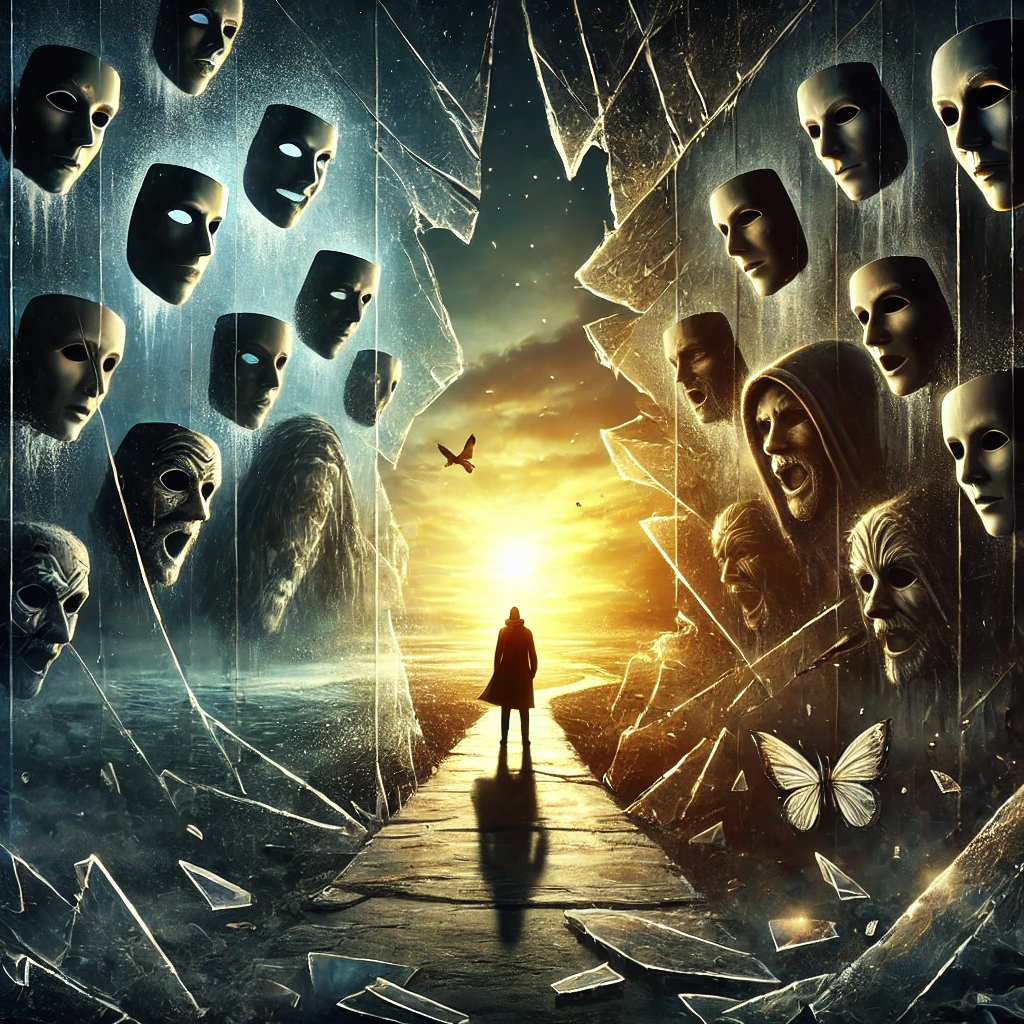
Meeting Honesty for the First Time
As an adult, I mostly surrounded myself with people who lied like I did. It was easier. Less guilt. Less pressure. We could all pretend we were fine together.
Then I met someone who didn’t lie. Like, actually didn’t. I didn’t buy it. I waited for the twist, the catch, the “gotcha.” Months went by and it still didn’t come.
That’s when it hit me how deep the damage ran. I wasn’t just suspicious of them. I was suspicious of reality. I’d learned to expect betrayal the way you expect rain in a bad season.
The Lies I Couldn’t Justify Anymore
Eventually, I slipped. I lied again. This time it was about using, and later about selling.
Those lies felt different. Not because they were bigger, but because they landed harder. They were proof I still wasn’t healed. I’ll tell the full story another day, but here’s the part that matters right now: it’s hard to stop lying when lying got tied to survival. But once you’ve tasted real truth, the lies start to rot in your mouth. You can feel them turning on you.
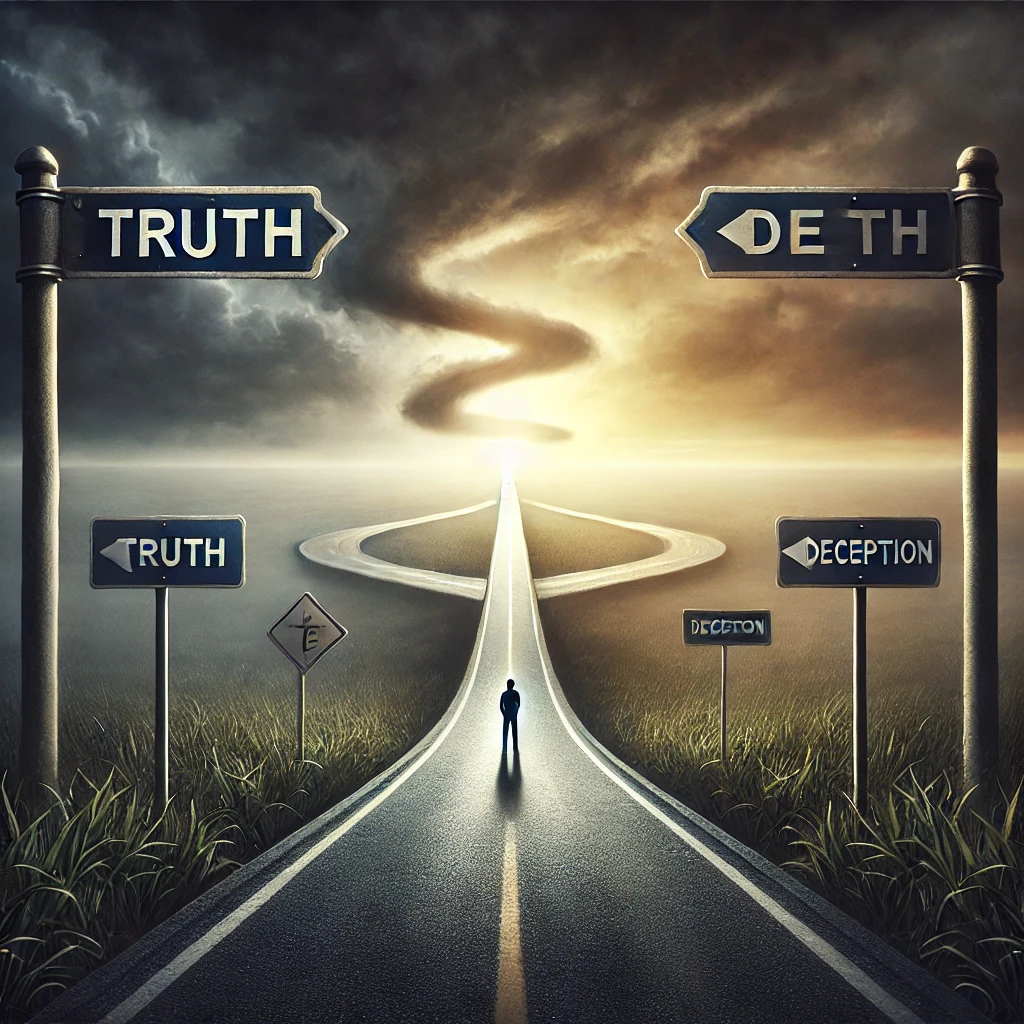
Why I Choose Truth Now
Corruption isn’t only systems and politics and suits on TV. It’s personal. It starts when dishonesty becomes the easy option. The “safer” option. The “smart” option.
That mindset poisoned my relationships, my choices, and how I looked at myself. It took years to untangle. A lie is a wound dressed up like protection. It doesn’t save anyone. It just pushes the pain down the road and charges interest.
I’m done living by a different set of rules than the ones I demand from everyone else.
